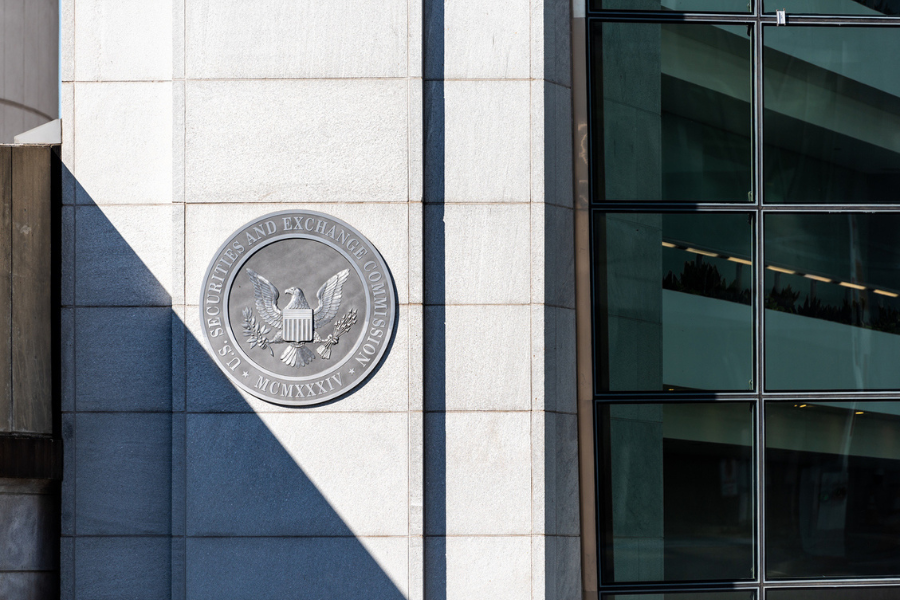

The future of the investment and financial advisory services is going to include artificial intelligence, of that we can be certain. But how is the use of AI going to shape the regulatory landscape?
With a recent Broadridge study showing that 75% of financial services firms are confident in their tech roadmap and wealth managers planning a 28% hike in their investment in AI technologies, regulators are keen to avoid a spike in compliance issues.
The SEC’s Investor Advisory Committee is holding a virtual public meeting on June 6 with a roundtable discussion titled ‘AI Regulation: Embracing the Future.’ It will examine the pros and cons of using AI and how the SEC will help practitioners navigate matters such as disclosures, data controls, bias, and education to ensure ethical and responsible AI practices within the existing regulatory framework and within any new guidance or rules.
It follows a recent guidance update from Finra advising investment firms and their agents about the correct way to handle digitally generated marketing and advertising communications.
The SEC and other regulators are increasing their investigatory and enforcement activities in response to the rapid growth of technologies such as AI being utilized in the investment and wealth advisory industries.
Earlier this year, two money managers paid six-figure financial penalties to the SEC relating to what the regulator claimed were bogus claims about the firms’ use of artificial intelligence.
Following that case, the SEC’s enforcement chief, Gurbir Grewal, said at a conference in Orlando, Florida, that his team are actively looking for misstatements, breaches of fiduciary duties by advisors, market manipulation, and conflicts of interest, among other matters.
SEC chair Gary Gensler spoke about the potential risks of AI at a National Press Club event in 2023.
“Since antiquity, bad actors have found new ways to deceive the public. With AI, fraudsters have a new tool to exploit. They may try to do it in a narrowcasting way, zeroing in on our personal vulnerabilities. We used to all get similar spam. Now, communications can be efficiently individualized,” he said.
Gensler also noted how AI and other technology make broadcasting – as well as narrowcasting – easier and riskier, citing that there had been reports that he was resigning circulating on the internet.
While he acknowledged that the use of AI can be beneficial for advisors and other finance professionals, he highlighted that such usage must be in the best interests of clients and investors.
“Make no mistake, though, under the securities laws, fraud is fraud. The SEC is focused on identifying and prosecuting any form of fraud that might threaten investors, capital formation, or the markets more broadly,” Gensler stressed.
While JPMorgan’s Jamie Dimon has predicted that JPMorgan Chase's CEO says AI's impact on the economy could equal that of the steam engine, industry professionals are increasingly aware of the risks and that caution remains the watchword when it comes to AI.

The move to charge data aggregators fees totaling hundreds of millions of dollars threatens to upend business models across the industry.

The latest snapshot report reveals large firms overwhelmingly account for branches and registrants as trend of net exits from FINRA continues.

Siding with the primary contact in a marriage might make sense at first, but having both parties' interests at heart could open a better way forward.

With more than $13 billion in assets, American Portfolios Advisors closed last October.

Robert D. Kendall brings decades of experience, including roles at DWS Americas and a former investment unit within Morgan Stanley, as he steps into a global leadership position.
Orion's Tom Wilson on delivering coordinated, high-touch service in a world where returns alone no longer set you apart.
Barely a decade old, registered index-linked annuities have quickly surged in popularity, thanks to their unique blend of protection and growth potential—an appealing option for investors looking to chart a steadier course through today's choppy market waters, says Myles Lambert, Brighthouse Financial.
